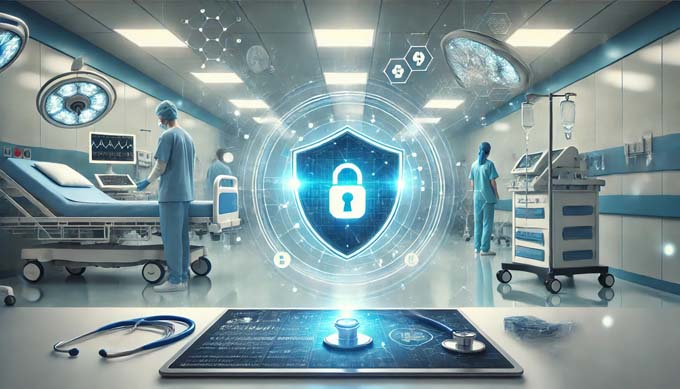When new technologies are pushed
If there were no innovations and no new technologies, today's prosperity would never have been achieved. Hardly any other sector is accompanied by laws, but also innovations such as "Big Data" like the healthcare industry. In which points does information management help and where could the reading of patient data remain complex?

With its "Health2020" strategy, the Federal Council aims to improve quality in the healthcare sector. The main element of the strategy is the promotion of electronic health services ("eHealth"), with the greatest attention being paid to the patient dossier. The Electronic Patient Dossier Act (EPDG) sets out the legal requirements for this, under which aspects medical data should be processed.
Currently, different recording models are in circulation in outpatient and inpatient areas. Without uniform eHealth dossiers, specialists would be faced with a babel of coordinates in the future.
Since 2015, the uniform, correct processing of patient information has been required by the federal government. Following the approval of both Federal Councils, it was decided in the spring session of 2015 that doctors would be obliged to participate in eHealth. Until now, the collection of uniform patient data was based on a voluntary basis in clinics and inpatient areas
Now the explicit forwarding of information is on the patient side: the patient decides on the further use or archiving of personal data. On the other hand, health insurers would like to see a complete abandonment of "double voluntariness" (doctor/patient). Patient protection is therefore caught between the chair and the bench, or between legal custom and new insurance models.
In addition to the political-legal controversy, many treating specialists are already using cloud computing and mobile devices to manage medical care. Actually, clinics, laboratories and homes are processing more and more layers of Big Data information. But who has sovereignty over it? And to what extent do eHealth trends benefit everyday clinical practice? The answers focus on the significant penetration of digital technologies into operations and a sensible focus on patient care.
"Avoiding inferences"
We are currently in the midst of a dynamic phase. Digitalization does not stop at doctors' offices. Those with better transparency, savings on medication and multiple treatments, shorter waiting times and perfect data availability will hold their own in the increasingly global healthcare market.
"The electronic benefit of the patient dossier becomes crucial insofar as the information is complete and up-to-date," says Dr. rer. nat. Günter Karjoth, an HSLU lecturer who worked for more than 25 years at the IBM Zurich Research Laboratory (in the fields of identity and access management and data protection, among others). The researcher, who has built bridges between computer science, medicine and technology, underlines a crucial point:
"In addition to name, gender and health insurance information, the medical data belong in the dossier. They describe the entire medical history, specific body characteristics and acute conditions. In order to prevent contrary conclusions about a person's state of health, sensitive data should therefore only be passed on in a protected manner.
The draft law does not provide for a general obligation to use mobile eHealth - only inpatient service providers are obliged to process data correctly if the patient requests a dossier. In the case of mobile data reconciliation or registration via apps, Swiss law still falls far short.
Data anonymization
Already at the first "Information Security in Health" conference in Rotkreuz, where the Lucerne University of Applied Sciences and Arts is almost next door to Novartis or Merck AG (Switzerland), legal gaps in data security and networking were discussed.
For example, Dr Karjoth explained, a dossier could leak relevant personal data if it were used in an uncoded cloud. Swiss healthcare experts therefore agree that the electronic patient dossier (EPD) should not only offer proven added value for the insured, but also protection for patients. This includes both a new data anonymization system and a modern identity and access management system.
In addition, the EPD certainly promotes synergies for clinics and insurance companies. PwC recently surveyed the directors of around 300 Swiss hospitals and clinics. The survey shows that hospital managers expect an immense change in the market, in which efficiency primarily prevails.
Other ubiquitous trends such as simulation, digital patient monitoring, data analysis Social media are seen by 76 percent of CEOs as "important to very important" from a strategic perspective. Nevertheless, the credo of the directors is: "Patient first".
Patients at eye level
Without focus and integration into a larger network, it will certainly become more difficult economically for small clinics. Their upcoming investments would have to take into account the expected digital trends - in addition, hospital managers would have to provide sufficient room for manoeuvre for social changes.
In order to respect the increased co-determination for specialists and patients alike, clinic operators and insurance companies are considering new business models and cooperations. However, the eternal desire to communicate with doctors on an equal footing could falter for reasons of rationalisation and overly lax structures in data protection.
The EPDG would have to be formulated by 2020 in such a way that medical care and small comfort demands of patients are not confused with a dizzy reconstruction of their own privacy.









